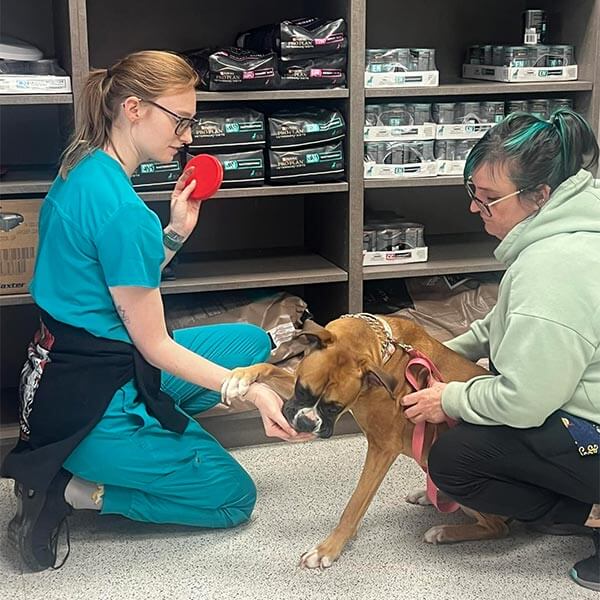Routine Care for a Healthier Life
Your pet depends on you for a lifetime of love—and on us for a lifetime of health. At Dallas Highway Animal Hospital, we believe in the power of preventive care to help your pet live a longer, happier, and healthier life. That’s why our wellness services are designed for pets of every age and stage, from wiggly puppies to wise seniors.
Annual Exams—The First Step in Preventive Care
We recommend annual wellness exams for all pets. These check-ups allow our veterinary team to monitor your pet’s overall health, catch problems early, and keep their vaccinations and preventives up to date.
Most pets benefit from these exams annually. However, for our senior pets, we recommend exams every six months to stay ahead of age-related health changes.

What’s Included in Pet Wellness Care?
Our comprehensive wellness visits may include the following services:
- Core Vaccinations—preventive care to help keep your pet healthy
- Fecal Testing—check for intestinal parasites
- Blood Work—wellness panels, such as tests tailored for juniors or seniors, can evaluate organ function, detect early signs of disease, and create a health baseline
- Heartworm, Flea, & Tick Prevention—protect your pet year-round from dangerous pests and parasites
We tailor every wellness visit to your pet’s age, lifestyle, and health history to make sure they’re getting exactly what they need.

Wellness Plans—Tailored Care for Every Life Stage
From puppy breath to silver muzzles, our wellness plans are built to support your pet through all life stages. We offer six different plans for kittens, puppies, adult pets, and seniors—each one designed to make routine care easier and more affordable.
Plans include vaccinations, exams, lab work, preventives, and even dental cleanings—bundled into manageable monthly payments. Check out our full list of wellness plans, or sign up today.
Senior Pet Care—Extra Love for Your Loyal Companion
As pets age, their health needs change. Senior pets deserve extra attention to stay comfortable and healthy throughout their golden years.
We recommend following a tailored senior care routine:
- Exams every 6 months
- Senior-specific blood work to monitor for age-related changes
- Laser Therapy for pain relief and mobility support
- Ongoing wellness support tailored to your senior pet's needs
Sick Pet Care—Care for Pets Not Feeling Their Best
If your pet isn’t acting like themselves—maybe they’re limping, having tummy troubles, or dealing with an ear infection—our compassionate team is here to help. We’ll diagnose the problem, provide fast relief, and get your pet back on their paws.


Ready to book a wellness visit or need care for a sick pet? Contact us today—we're here for every tail wag, purr, and paw step of the way.

